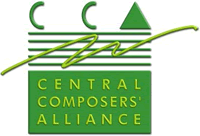|
CCA Composer of the Month – July 2014
[Editor´s note: the photos on the right show (top to bottom) 1-2. Kenneth Gange; 3-5.Carson Cooman; 6. Mozart; 7. Dvo ák; 8. Tchaikovsky; 9. J. S. Bach; 10. Boëllmann.]
YOUR FEATURED COMPOSITION(S) OF THE MONTH:
Three Quiet Pieces [1996]
INSTRUMENTAL AND/OR VOCAL RESOURCES USED:
Organ
FIRST PERFORMANCE DETAILS – IF RELEVANT:
Not known - although they were recorded in December 2013
PERFORMERS ON YOUR RECORDING – IF RELEVANT:
Carson Cooman – recorded in the Memorial Church of Harvard University
OF THE WORK(S) YOU HAVE SELECTED FOR THE COMPOSER OF THE MONTH FEATURE, WHAT WAS THE SOURCE/INSPIRATION/COMMISSION WHICH SET THIS PIECE OR THESE PIECES IN MOTION?
These were simply written for my own use and for publication
WHAT WOULD BE A GOOD PROGRAMME NOTE FOR THIS WORK (OR THESE WORKS) WHICH EXPLAINS THE STRUCTURE, USE OF MELODY AND HARMONY AND ANY TECHNICAL POINTS RELATED TO THE PERFORMERS?
Quiet Piece 1 and Quiet Piece 3 are each reflective in character and are written for manuals only although organists can readily employ pedals. Quiet Piece 2 has the character of a Baroque florid melody over a steadily moving bass and accompaniment.
WHEN DID YOU FIRST START COMPOSING AND WHAT WAS YOUR FIRST PIECE?
At about 13 years of age when I wrote some short pieces for piano. I expect (and hope) that they have been destroyed.
WHO WAS IT THAT FIRST ENCOURAGED YOU TO DEVELOP YOUR INTEREST IN COMPOSING AND HOW DID THEY HELP?
My music teachers at Llanelli Grammar School – Haydn Jones, Frank Phillips * & H M Adams. The last particularly helped by asking me to write pieces which the school groups performed:- Let us now praise famous men for unison voices and strings and also a Divertimento for solo piano and strings.
WHO DO YOU CONSIDER YOUR GREATEST INSPIRATIONS IN TERMS OF THE MAJOR COMPOSERS AND WHICH OF THEIR WORKS HAS INFLUENCED YOU THE MOST AND WHY?
Different composers at different times and many pieces at different times.
HOW WOULD YOU DESCRIBE YOUR STYLE TO SOMEONE WHO HAS NEVER HEARD YOUR MUSIC BEFORE?
Accessible, straightforward, hopefully tuneful and not too demanding on the ear. Hardly anything I have written could be classed as virtuosic.
WHAT DO YOU FEEL IS ORIGINAL IN YOUR MUSIC?
Goodness only knows. I do not set out to be original but to write music I would like to listen to.
HOW DO YOU WORK? WHAT METHODS OF CREATIVITY AND WORK ETHIC DO YOU HAVE? DO YOU SOLELY USE MUSICAL TECHNOLOGY OR DO PAPER AND PENCIL STILL FORM A PART OF YOUR PROCESS?
I use pen and paper and rarely start with much of a plan: the music evolves as I write it.
WHAT PROJECTS ARE YOU CURRENTLY WORKING ON?
Pieces for pupils and friends, for my grandson who is a harpist [grade 6/7 at the moment], for granddaughter who is a beginner violinist and pianist, for a choir I conduct, and for anyone who asks.
To finish, who or what is your favourite:
Genre of Music?
Instrumentalist?
Singer?
Chamber Ensemble?
Orchestra?
Concert Venue?
Piece of Music? -
I have no particular favourite performers etc. Since my schooldays I have been fond of Mozart’s Symphony No. 29 in A, Dvorák’s Cello Concerto, Tchaikovsky’s Symphony No. 5, Bach’s Mass in B minor, Boëllmann’s Variations Symphoniques for Cello & Orchestra [I wonder how many of you reading this have heard this glorious piece!] and certain Welsh hymn-tunes.
[EDITOR: Each of the pieces mentioned by Kenneth are linked to a YouTube performance below so you can actually watch the Boëllmann and also follow the music by clicking on the title of the piece!]
* Mr Frank Phillips began as an uncertificated teacher at Halfway Primary School, Llanelli, in September 1913 and proved to be extremely popular with staff and scholars. He departed to continue his studies at Aberystwyth University, but frequently returned to the school during college vacations and later, during his war service as a private, to assist voluntarily. Frank was for many years music master at the old Llanelli Boys’ Grammar School.




